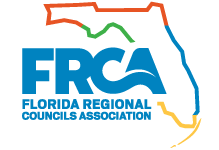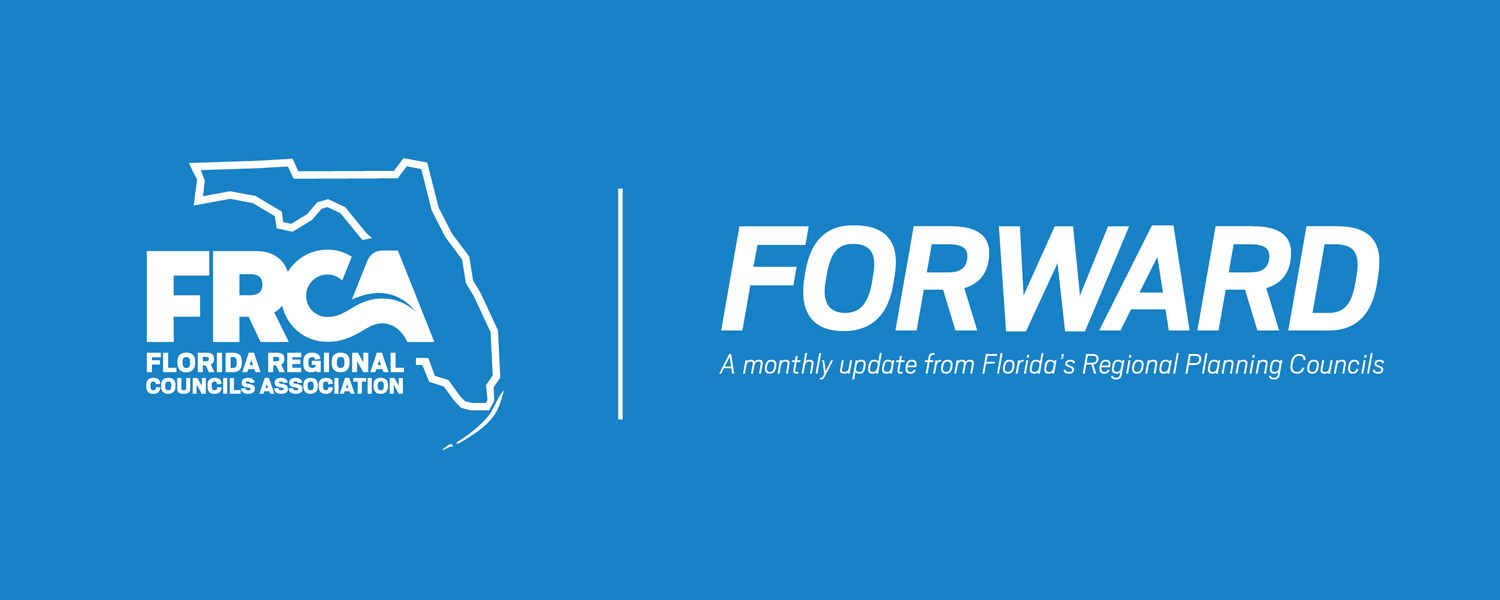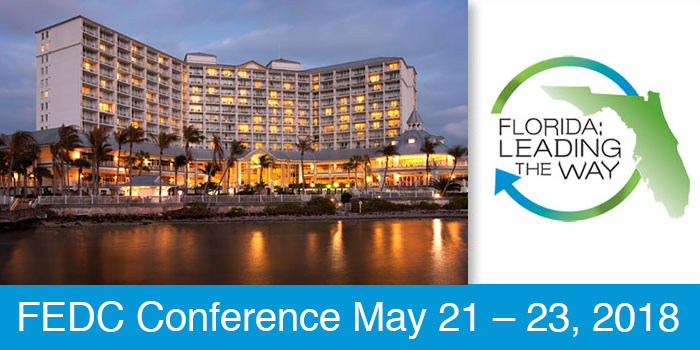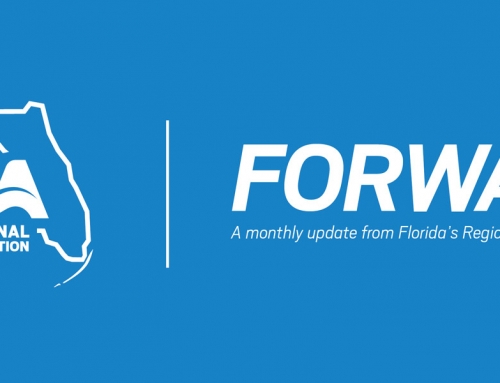Tampa Bay RPC Hosts Sea Level Rise and Climate Resilience:
A Regional Roundtable Conversation
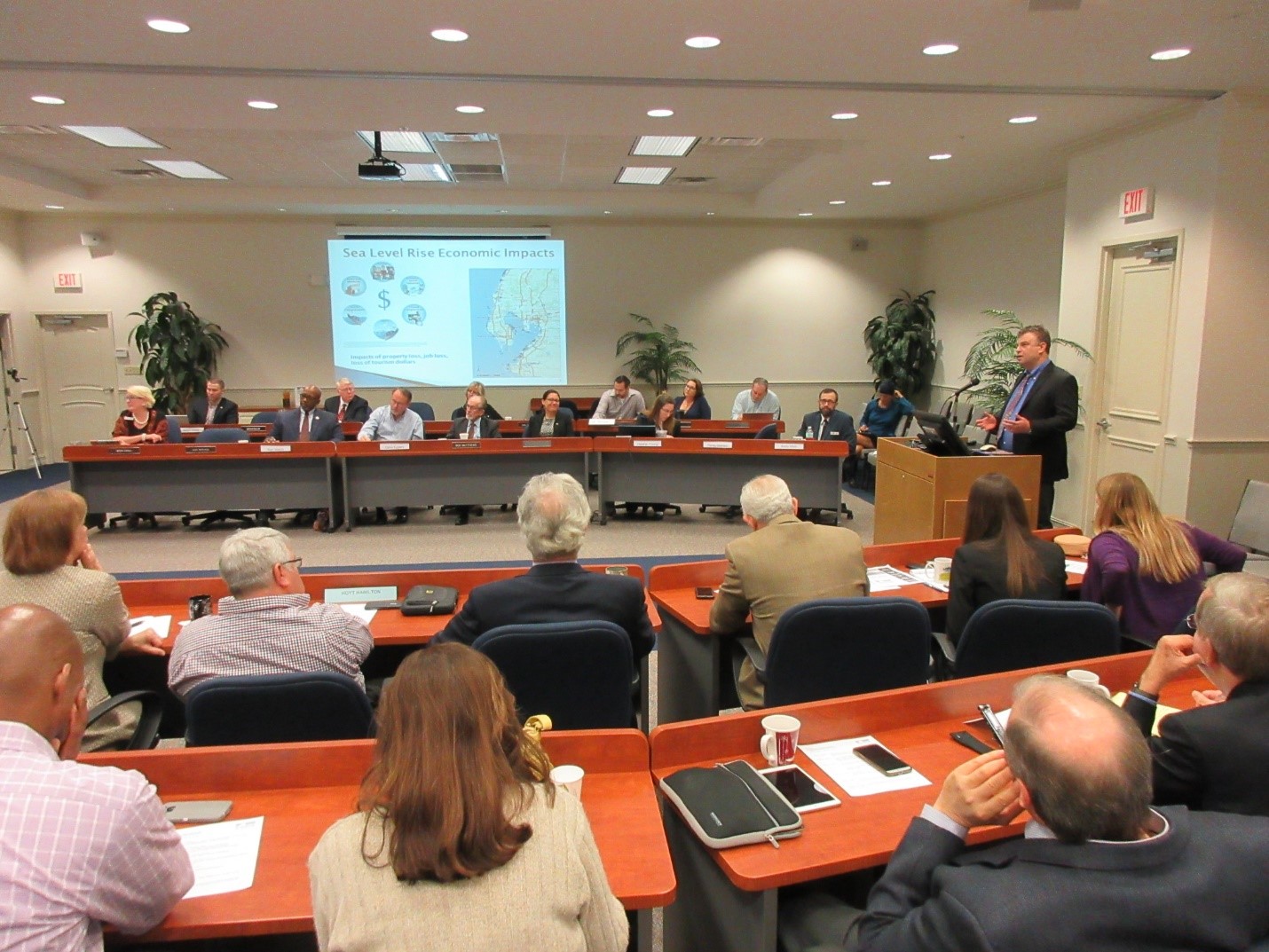 The Tampa Bay Regional Planning Council hosted a regional conversation regarding Sea Level Rise and Climate Resilience on January 8, 2018. Pinellas County Commissioner Janet C. Long, Chair of the Tampa Bay RPC led the three-hour interactive discussion for more than two dozen local elected officials and climate resiliency experts.
The Tampa Bay Regional Planning Council hosted a regional conversation regarding Sea Level Rise and Climate Resilience on January 8, 2018. Pinellas County Commissioner Janet C. Long, Chair of the Tampa Bay RPC led the three-hour interactive discussion for more than two dozen local elected officials and climate resiliency experts.
Under Commissioner Long’s leadership, the Tampa Bay RPC is convening the region on a pressing issue that is impacting our local governments today and will continue to do so in the future. Attendees heard presentations from three experts on sea level rise and climate resilience. The presentations included a discussion of the challenges ahead for local governments, the economic impacts of sea level rise, and one community’s response.
Dr. Jennifer Jurado, Chief Resilience Officer for Broward County provided an overview of the Southeast Florida Regional Climate Change Compact initiative. The compact of local governments which was initiated in 2009, hosts an annual summit and has produced a Regional Climate Action Plan to integrate climate adaptation and mitigation into existing systems and processes. Tampa Bay RPC Executive Director, Sean Sullivan explained that, “The benefits of this successful regional approach is that it creates a stronger voice, accelerates progressive planning and leverages existing resources. And, by broadening partnerships and cultivating cooperation amongst our local governments, access to resources and information is enhanced.”
“Our objective at the regional planning council is to assist local governments with viable opportunities for implementing both adaptation strategies that increase the region’s resilience to sea level rise and other coastal hazards as well as an emissions reductions plan to avoid further vulnerabilities,” stated Long. “A Compact in our region will foster collaboration such as shared sea level rise projections so local governments can better coordinate, develop, and implement appropriate coastal adaptation and implement risk reduction strategies to reduce the drivers of sea level rise with the critical goal of maintaining our region’s wonderful quality of life for generations to come.”
West Florida LEPC Recent Activities
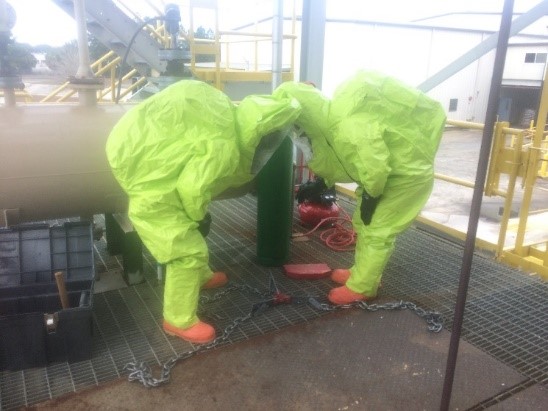
The West Florida Regional Planning Council serves as staff to the West Florida Local Emergency Planning Committee and one of its main goals is to assist first responders in preparing for hazardous materials related emergencies. In December, the Escambia County Hazardous Materials Response Team and Kraton Chemical in Pensacola, teamed up to hold a joint-small scale exercise at the Kraton Chemical facility. The hazardous materials team members focused on responding to chemicals stored at the facility.
Recently, the West Florida LEPC met in Bay County and reviewed the Training Subcommittee schedule, upcoming classes, the success of the hybrid 160-Hour Technician Level Course and changes in reporting requirements for hazardous materials. Based on the success of the hybrid Technician Level Course, there are plans to host another course for hazardous materials first responders in 2018.
East Central Florida RPC Awarded Grant for Eco-Tourism
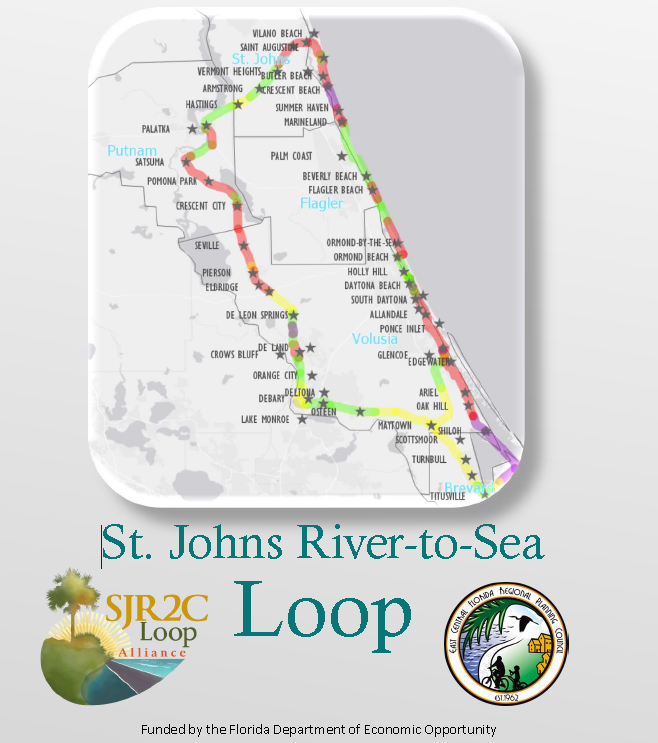 The Florida Department of Economic Opportunity recently awarded a grant for the development of the St. Johns River to Sea Loop Strategic Plan and Eco-Tourism Resources to the East Central Florida RPC. The project is a collaborative effort with the Northeast Florida RC and the St Johns River-to-Sea Loop Alliance. Additional collaborative partners include the five counties and several cities along the trail. To promote eco-tourism opportunities, partners along the Loop are creating a brand and marketing strategies and identifying collaboration opportunities. Through the inclusion of opportunity maps and a resource directory, the Strategic Plan will promote economic development and identify eco-tourism opportunities along the River-to-Sea Loop. A Locally Resourceful Trail Oriented Development Case Study will be produced.
The Florida Department of Economic Opportunity recently awarded a grant for the development of the St. Johns River to Sea Loop Strategic Plan and Eco-Tourism Resources to the East Central Florida RPC. The project is a collaborative effort with the Northeast Florida RC and the St Johns River-to-Sea Loop Alliance. Additional collaborative partners include the five counties and several cities along the trail. To promote eco-tourism opportunities, partners along the Loop are creating a brand and marketing strategies and identifying collaboration opportunities. Through the inclusion of opportunity maps and a resource directory, the Strategic Plan will promote economic development and identify eco-tourism opportunities along the River-to-Sea Loop. A Locally Resourceful Trail Oriented Development Case Study will be produced.
The story maps and resource directory are intended to attract trail visitors to destinations along the trail and market private businesses as well as municipal and county resources. A case study on the Agritourism Corridor through Putnam, Flagler and St Johns Counties will transfer lessons learned, knowledge and implementation strategies along the trail, fueling other trail oriented economic development opportunities.
Stakeholder input is of utmost importance and three stakeholder meetings/webinars will be held throughout the process. This will include outreach to review documents, maps and data to ensure accuracy as well as support and inclusiveness of the project deliverables and the future of the Loop
_____________________________________________________________________________________________________________________________________

